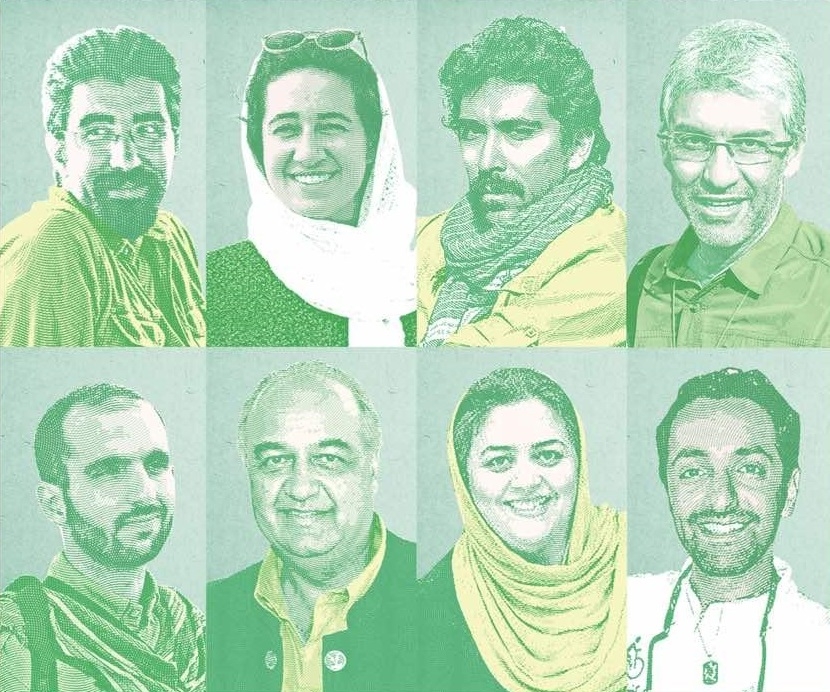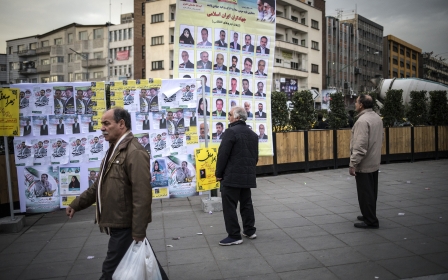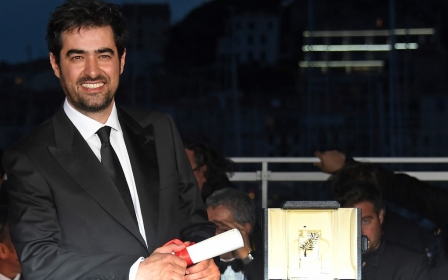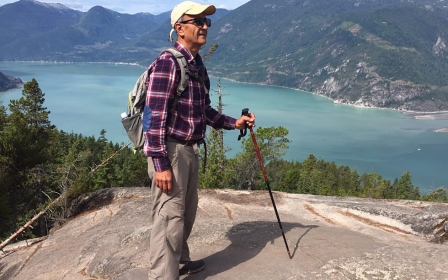Iran upholds lengthy prison sentences for eight environmentalists

An Iranian court has upheld prison sentences ranging from four to 10 years against eight members of the Persian Wildlife Heritage Foundation, despite criticism by rights groups.
According to Iranian judiciary spokesperson Gholamhossein Esmaili, a court of appeal on Tuesday convicted seven defendants on charges of “cooperating with the hostile state of the US”, and sentenced them to between six to 10 years in prison.
Another environmentalist, Abdolreza Kouhpayeh, was sentenced to four years on charges of “assembly and collusion to act against national security”.
"The appeals court endorsed and finalised the sentences of the suspects in the so-called environmentalists' case, as we believe it to be a case of acting against national security," Esmaili said.
Human Rights Watch on Wednesday condemned the sentences as “unjust” and said Iranian authorities “failed to produce any evidence to support their charges”.
New MEE newsletter: Jerusalem Dispatch
Sign up to get the latest insights and analysis on Israel-Palestine, alongside Turkey Unpacked and other MEE newsletters
A ninth environmentalist, Canadian-Iranian sociology professor Kavous Seyed Emami, died in Tehran’s notorious Evin prison weeks after his arrest in January 2018. The Iranian government claimed he committed suicide, but did not accept his family’s demands to investigate his death.
‘Espionage’
Esmaili said the appeals court upheld 10-year sentences for Niloufar Bayani and Morad Tahbaz, accusing them of receiving “illicit funds”.
Prior to her arrest, Bayani worked as the programme manager for the Persian Wildlife Heritage Foundation. A graduate of the McGill and Columbia universities in the United States, she previously served as a consultant with the UN's Environment Programme.
According to HRW, the court ordered Bayani to return $360,000 of salaries she allegedly received from the UN Environment Programme in her six years of working there.
Two other defendants, Houman Jokar and Taher Ghadirian, were sentenced to eight years on charges of “cooperating with the hostile states of the US and Israel through spying against the Islamic Republic and in favour of the foreign intelligence services of the CIA and Mossad”.
Three others, Amir Hossein Khaleghian, Sepideh Kashani and Sam Rajabi, received six-year sentences on the same espionage charges.
The defendants were initially charged with “sowing corruption on earth”, a crime punishable by the death penalty in Iran. But their charges were later amended to espionage with Israel and the US.
Iranian officials, including the ministers of intelligence and environment, have emphasised on various occasions that the charges against the conservationists are baseless.
Translation: Tehran MP Mahmoud Sadeghi: "According to the Supreme National Security Council, after examining the environmental defendants' case, they have not been identified as spies."
Last February, Bayani said during her trial that defendants including herself had been subjected to psychological torture that led to forced confessions.
The defendants have not been allowed to hire their own lawyers, according to HRW, and were forced to be represented by lawyers pre-approved by the judiciary.
Hollywood star Leonardo DiCaprio, an environmental advocate, has expressed solidarity with the detained activists, saying the camera traps they used "are not spying tools" as alleged by the Iranian judiciary.
"Houman Jowkar and Amirhossein Khaleghi Hamidi worked with the government, not against it, and local rangers worked with them in the field," he wrote on Instagram.
"They were not operating on their own. They are patriots dedicated to saving one of Iran’s most powerful natural symbols from extinction."
Middle East Eye delivers independent and unrivalled coverage and analysis of the Middle East, North Africa and beyond. To learn more about republishing this content and the associated fees, please fill out this form. More about MEE can be found here.




